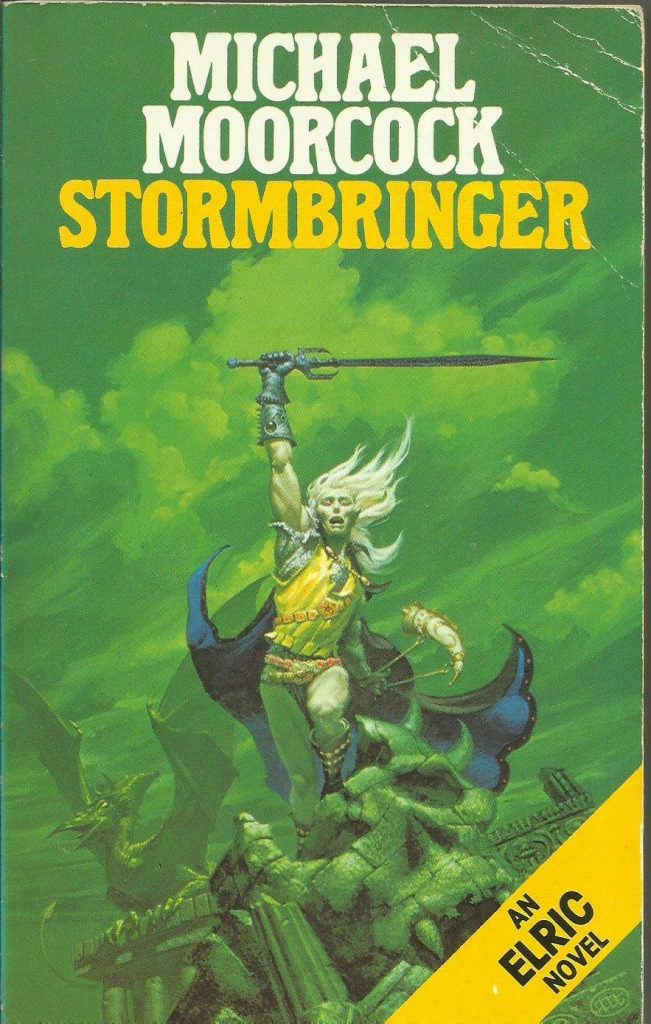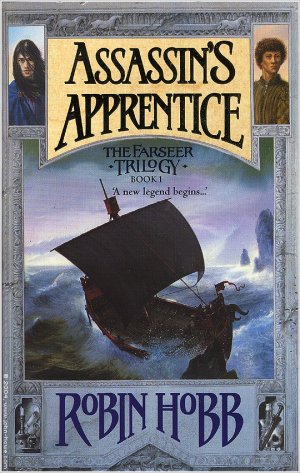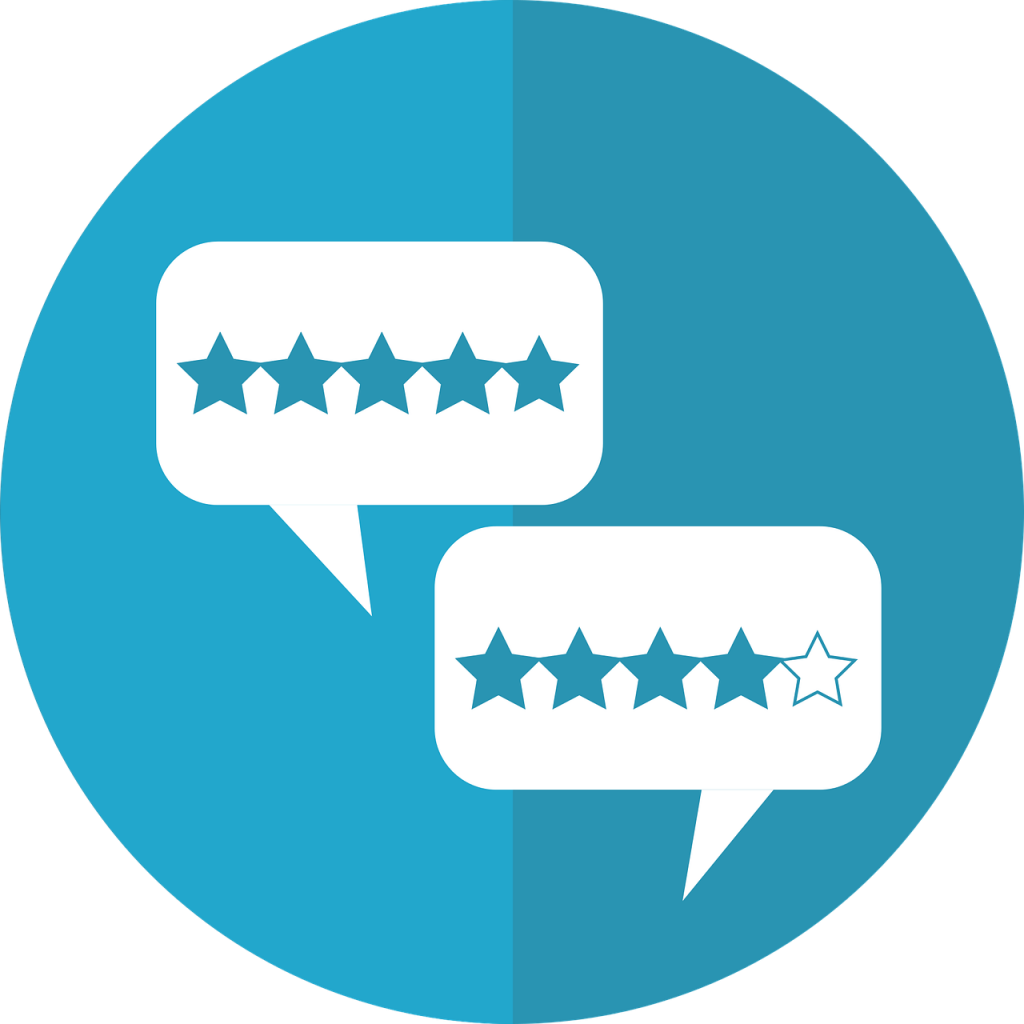How do you choose a book?
I was asked this question a few months ago by a visitor to this blog. You won’t see the question if you search the comments. The reason is not that I deleted it, but because the person asking the question asked me in private. I answered the question via email and have not used their name here in this post (although you know who you are, Bob).
As a reader, I don’t care about reviews. I never have.
(cue shocked gasps)
I have never read (or not read) a book based upon someone else’s review. Ever. As blunt as this sounds (and I can be very blunt at times – unless you’re buying the round, in which case you’re alright in my book), I really couldn’t care less.
I prefer to make my own decision when it comes to books, movies, art, music, etc. I might make mistakes, but they’re mine to make. It’s one of the fun aspects of finding new books or new music in my opinion (and that’s all this post is, since it is my blog after all).
The only time I’ll read a review is when it comes down to something like a car, a computer, software, a camera etc. Why? Because I want to know if I’m going to have to replace it in another 6-months or if I can get spares for it and how much they cost? etc.
When I buy a painting, I don’t intend to upgrade, repaint, or replace the thing. All that matters is whether I like it; not you, not Bob, not the bloke on the internet. I’m sure you’ve all known someone over the years who hears a song on the radio and asks “Who is this?” You tell them and they look surprised. “Oh,” they say, “I’d heard their music was all loud noise and crap. That song was great!” That sort of thing annoys me.

Before the internet came along, the only reviews you found were in journals, newspapers, or newsletters (paper ones). I never read the reviews, my only concern being the release dates for books or authors that interested me at the time. Besides, back then, unless you were involved in something like a newsletter or journal then you couldn’t just write a review for any book you had just read.
So, how do I choose a book?
Back in the days of yore, it was all about the cover for me (it still is). The cover would catch my attention. Sometimes, it was the title. If I’m searching the shelves (or online shelves) and I see a cover or title that does it for me then I’ll have to find out more about it. In my youth, I would compare US and British covers of the same book, just to see which I preferred (you might think I’m biased here, but the British versions were far superior – trust me!). I remember when I first saw the title “Stormbringer” on a shelf. At the time, I didn’t know anything about Moorcock or Elric… but that title! Who wouldn’t want to pick the book up and have look?
Once I had picked a book up, I would always read the blurb. I did that when I first saw a large tome called “Assassin’s Apprentice” by Robin Hobb sat in Waterstones. I had no idea who Robin Hobb was or any idea about the book. The cover appeared a little Tolkien-esque and the title, well, I was sold! The blurb confirmed that this was a book I would be interested in, so much so, that I didn’t even bother looking at the first pages. I wanted to save them for the moment I could sit down and savour them in the correct environment (which in this case happened to be over a stale piece of toast in my little flat – I was at university). So, I threw my money at the cashier and dashed out into the street (or did I forget to throw the money?).

Sometimes, if I wasn’t entirely sure if the book was for me, I’d take a look at the first few pages. Perhaps I would skip to the back and take a look at the author bio, just to see if they mentioned any influences or previous works that might entice me. On occasion, it might turn out to be a genre I wasn’t normally interested in. Still, the cover hooked me and got me to look at, and consider, something I would never type into a search field in my browser. I might not buy the book, but then again, if my curiosity was piqued… maybe I would.
After all this, I would look at the price and how much I could dig out from the back of the sofa. Of course, you do sometimes find that a great cover can wallpaper over a poorly-written story. You can usually catch them at the blurb or within the first few pages. It’s not always the case, but it has only happened to me on a few occasions.
Why the hate for reviews?
I don’t hate them at all. I just don’t need someone’s else views in order to decide what I want to read, look at, or listen to (Bob doesn’t either – he told me so).
A book is special. Sometimes it is too special to share. Generally, those friends I’ve known over the years would sometimes sit and have a chat, during the course of a pint, about whatever book we were reading at the time or had read recently. This wasn’t a review. This was a few people telling you what a book was about (without spoiling it). No different from reading the blurb really, only you had someone else doing the ‘leg work’ for you. Perfect.
In some rare instances, I would write a letter to the author to tell them what I thought of their book. They were moments where I was very impressed by something. In some cases, these letters actually made it past the clutches of the nefarious agents and into the author’s hand (perhaps). I remember writing to (and getting a reply from) Robin Hobb (Margaret Ogden) and Trudi Canavan. I also wrote to Neil Gaiman once or twice, but he must have eaten them (postage stamps and all) as nothing ever came back (don’t worry Neil, I don’t hold it against you… much).
But… you’re an author… surely you want reviews?
Reviews are nice, of course, but I don’t crave comments on everything I write.
(cue angry stares)
I understand how some readers just don’t want to go public with how the book made them feel. Some, like the unmentionable ‘Bob’, don’t want their thoughts aired in ‘public’ or ‘searchable’. Their thoughts are solely for the author and themselves. No one else.

On the other hand, there are readers that feel nervous about marking down a book in case an author descends from their ivory tower to rain fury and ruin upon them. I don’t think a reader should ever feel pressured, pestered, or nagged into making a review. Yet, with reviews often being seen as a potential for more sales by indie authors, pressure will always be exerted by some.
The only time I check my online reviews is whenever I happen to update my Amazon profile (once every six months – give or take – I have no idea about Kobo or B&N). You don’t have to believe me, but it’s true.
Some suggest that I don’t care about my readers because of this. When asked this question, I often think about the authors that I’ve followed in my life. Do they care about me as a reader? It is an odd question and the standard phrase is “Yes! I love my readers! Every ugly one of them!” (note to self: edit out ‘ugly’). Do they though? Perhaps in the collective sense. I’ve never really given it much thought.
Sometimes, I get personal emails from readers telling me what they liked or didn’t like. I like and appreciate this far more than I do reviews on Amazon or Goodreads and I always try to respond as my time allows me. They might not help me sell more books, but personal views mean a lot more to me than someone posting a few lines on Amazon. Besides, you could have 20 reviews on Amazon UK, but sod all on Amazon US, or Amazon ES, FR, DE, JP, CN… that’s not even considering B&N and all the others.
But… you do write reviews, don’t you?
No. Well, not often.
(cue sharpening of pitchforks by other authors)
I think I’ve already explained, in length, how I feel about reviews. As I’ve also said, I do sometimes write/email an author about their work, if I thought it very good/bad (or if they directly asked me to). I certainly don’t write to every author that I read.
I don’t think a lot of authors (especially indie) realise what power they hold when it comes to reviews. Once you build up any sort of following, your comments will be viewed much more keenly. This is especially the case if you leave a review. Your readers will possibly decide upon a book just because of what you think. Imagine you wrote a horror story and, by pure chance, Stephen King stumbled across it. Just a few comments in your favour would probably give your work an undreamt-of boost. Obviously, beginning authors hold far less sway than Mr King does, but once you put a book out there yourself you are no longer ‘just a reader’.
I do award stars to books. The stars are actually more for my own reference than for other readers. It allows me to search out those books that I thought were fantastic and those that I thought were okay, etc. I’m conscious that this can influence some readers into buying a book. Some people just can’t decide for themselves and want to follow the general consensus.
I think that is what bothers me the most. You see people on forums asking which book they should read first (even though they are leaning towards one over the other) or should they watch such and such film. I just can’t understand that.
I know some authors that won’t touch a book unless it’s rated 4+ on average, just like some others won’t even glance at a blurb if the book has zero reviews. I find this strange, perhaps because I used to buy my books from wandering bookshelves without any ‘guide’ to consult. These days, people look at a book on a shelf then jump on their smartphones to see how many stars/reviews it has. Personally, I find this sad as I’ve found lots of good books over the years that have neither. Read the author not the reviewer. That’s what the blurb is for.
Anyway, for those that are still with me, I’ve posted my own understanding of ratings below. This is mainly for those heartbroken authors that come crying to my door, demanding to know why I gave them 3-stars or that assume a 4-star rating is no better than faecal matter. It goes like this:
⭐️
I didn’t finish it. I feel bad about the time I wasted. I feel even worse for the book itself.
⭐️⭐️
I liked it. Nothing more to add really (by ‘liked’ I can also mean ‘okay’… ok?)
⭐️⭐️⭐️
This was a good book. I enjoyed it. I took time in reading it and thinking about it afterwards.
⭐️⭐️⭐️⭐️
This was an excellent book. I’ll read it again. I’ll probably suggest someone else read it.
⭐️⭐️⭐️⭐️⭐️
This is was truly fantastic or something original (or it was somehow inspirational to me). I’ve probably been reading this instead of doing other things e.g. writing, eating, working…
⭐️⭐️⭐️⭐️⭐️⭐️
There is no six… but some books deserve a six. They are rare and written with the stuff of dreams…
Below is a sample of a US vs UK cover (because I knew some of you wouldn’t believe me…). Now, I haven’t actually read this book myself, which is why I used this as an example. On the left, the black cover, we have the US version. On the right, we have the cover used for the UK market.


For myself, if I saw the US cover on a shelf I would hesitate a little. The girl is quite pretty and I do like the glass castle, but I’m wondering if it is heavy on the romance (she doesn’t come across as battle-hardened). The title is interesting, of course, since it’s similar to my own “Throne of Ice” (ahem), but the UK cover… now this cover makes me want to like this book before I even get to the blurb!
Which would you buy?






Crispian, your posts are nearly always entertaining, thought provoking, or both. After reading your post, I sat back and reflected on it and decided I had to agree. In the end, a book review doesn’t mean a thing as to whether or not I’ll like the book. The same with art, music, and anything else that is an expression of creativity.
Having written that, I also confess I read reviews of indie authored books because I’ve been burned too often with a wonderful blurb, cover, and trailer — only to find the book itself to be… Well, let’s just say it didn’t live up to it’s billing. If I read reviews that tell me the author needs an editor or proofreader, or Creative Writing 101, I usually skip those books because if the author can’t take the time to work out the bugs, why should I spend my hard earned cash to buy his or her sloppily executed art? There are an awful lot of books in the world and only so much time available to read them.
Having written that, I also understand even the best and most diligent efforts to weed out all those little typo devils are sometimes beyond even the most scrupulous efforts of the best of editors and proofreaders. I am willing to forgive if the story is a good read. After all, Erasmus had a point: to error is human; to forgive, divine. And we all like to think there is a spark of the divine somewhere in us.
I think the hype for authors to get reviews is money. Many people won’t buy a book which hasn’t been reviewed. They aren’t risk takers. And “they” tell us we need reviews, and ad campaigns, and blogs, and Facebook, and Twitter — if we are to be successful. Perhaps “they” are right. I guess it comes down to why one writes.
Which poses a bit of a conflict for me. I write first of all, because I have to. I cannot not write. But in doing so I basically write for myself, with a sidelong glance towards others. It is what I did when I wrote poetry and it is what I do now with my fiction. Chesterton wasn’t far off: when I want to read a good book, I write one. I write a story, I’d like to read. If someone else enjoys it, so much the better. The same when I made wine years ago. It was for me. If someone else also liked it. Well, Cheers!
So I primarily write for myself, but am willing to share. The dark side is I’d also like to make some money so I can at least keep myself in paper and pencils and maybe some tea and music. Which means I have a vested interest in those doggone reviews. Not because I want them. Yes, I’m vain enough to like the nice ones. But because others are using them to decide if they will give me money for my book. Or end up buying some other writer’s book. It is the horns of a dilemma. Perhaps of my own making because I’ve introduced filthy lucre into the equation.
I suppose, if push came to shove, it doesn’t really matter. I’m going to write and publish my fiction anyway. Reviews or no reviews. Money or no money. Although, it would be nice…
Ah! Chesterton… cheers indeed!
A well-considered reply. Thanks for taking the time to write it 🙂
I, like you, and most writers, sit down and pull words out of the aether and string them into sentences because we must. The need to do so goes beyond any potential future reward. The desire to create burns within all of us. We must let it out lest it consumes us, or worse, is extinguished entirely.
I understand that reviews are part of an author’s economy, whether they (I) like it or not. Those that write solely for money can usually be found out fairly quickly. You can frequently see it in the title, in the blurb, or the opening pages. More so today, you can see it in their online presence. Constant streams of advertising which strikethrough the ‘social’ in social media entirely. Their goal is simple even if their method lacks subtlety or imagination.
I agree with you that there are a lot of bad books out there, especially amongst the self-published. A pretty cover with all the associated trimmings can be afforded by the financially sound of the ‘indie-class’. It can, as you say, disguise the sloppy writing within. I can appreciate that those unfortunates who delved into these ‘wrecks’ wish to warn others of their experience. ‘Here be dragons!’ indeed.
In all likelihood, the book in question may never have made it onto the shelves (digital or otherwise) if the writer had undertaken a more ‘traditional’ journey. The desire for publication often leads to a mad rush the moment the first draft is complete. This often leads to little or no thought to editing or rewriting. It is one of the virtues lacking amongst the self-published that publishing houses (usually) have in abundance. Patience.
I too can sometimes overlook errors if the story is good, but it has to be very good. If I start picking up on too many mistakes, I start editing the sentences in my head instead of reading the story. Then I stop and consign the book to someplace dark where its sobbing can not disturb others.
Although there is the argument for and against friends and family reviewing an author’s work, it needs to be said that in most cases such reviews are generally going to be positive. In the same way, this can often be true about reviews from people we interact with online. The fear of being ‘unfollowed’ or ‘unfriended’ is quite real for some. This is not always the case and I know it is pessimistic of me to assume that all positive reviews are ‘overly generous’, but I still have my doubts.
Ultimately, I’d hope everyone gave someone the chance, no matter how many reviews or stars something had. There always has to be someone to leave the first review and that someone picked it up without any ‘assistance’.
“To know what you prefer instead of humbly saying Amen to what the world tells you you ought to prefer, is to have kept your soul alive.” — Robert Louis Stevenson
What a marvelous quote from RLS. Ideally, it should be the motto for all of us.
Perhaps I am fortunate. I have 2 family members who are not only forthcoming with praise, but also with: “You wrote THAT? Geez, you can do better.” And then I set about doing so. Their sometimes harsh critique is accepted because I know they have my interests at heart.
I also have an online friend who is forthcoming with valid critique. We trust each other enough to have gotten beyond that “unfriend” concern. We provide valuable support for each other.
Even if one pays for editorial advice, one is only getting an opinion. And no opinion is unbiased. Nor are all editors kindly souls.
The key is to scout out those who are knowledgeable AND who are willing to support you because they are not threatened by your success should it come. Before I retired, I scouted out such folk at work. I had those knowledgeable people I went to. They were my resource people. It works the same for writing.
In the end, we artists must hold our own hands. We must support ourselves. Art is a lonely business. And not all are up to the task.
And I agree, hopefully we are willing to give one a chance — even if they have no stars.
Great post, Crispian.
I agree with you. I started out in the indie community leaving copious reviews on things I had read because I felt I owed it, in a way, to the authors, but not every book inspired a blog’s post worth of comments, and not every book needed them, either. I am definitely much like you in how I choose my books.
I never read reviews until after finishing a book, and usually it’s to see the reviews of the people who don’t agree with me, since I like to pretend I am having a debate or conversation in my head as I develop my final opinions. 😛
For the indie stuff I have published, I’m not overly concerned with reviews, except that I know that reviews now somehow mean “credibility”…. but I am pretty disillusioned in that with the knowledge that an author that I won’t name from a writing group I’m a part of wrote many of his own reviews to puff up that credibility.
Is it bad that I can’t be happy for their current successes on that title because of the tactics they used? Or should I just put away my own judgement and give him a clap for getting the successes he claims he deserves for the hard work? Hard call for me, since I like ethics in things, but know the race for exposure is very rarely ethical.
….bit sidetracked.
In any case, I would have picked up the UK cover no problem, but would have dubbed the US version too teen-angsty and skipped right over it.
Cheers, Alex!
I quite like that idea about reading the reviews ‘afterwards’ to see how they compare to your own views. Interesting.
I agree. It is a shame that credibility is often associated with reviews. I would rather have the approval of my fellow writers and no reviews than their turned eye and a million of such. I think of Keats and how it was only after his death that his reputation grew (as was the case with a great many), despite the support of notable contemporaries, such as Shelley. It might be considered odd, but I would gladly forgo success now if it meant something that I wrote would survive after me in the memories of generations to come.
For me, anything less than immortality is mere pocket change 😉
It is unfortunate that some authors write and buy their own reviews. It does not surprise me in the slightest. It is extremely widespread whatever the pro-indie crowd suggest. In fact, when I first joined Twitter as an author last year, the second DM I received was from an author. They asked me if I could read and review their book and in return they would do the same. The implication made being, if I gave them a good review they would do likewise, and this was suggested as ‘supporting the indie cause’. Needless to say, I made creative use of cramming expletives into my 140-character response.
The author that you mentioned may well consider themselves ‘credible’, but clearly there are those, such as yourself, that know what they have done. If ever there was the need for a “black spot” to be slipped furtively into a writer’s hand it is for acts such as this foul individual has commited.
I have the same feeling about that US cover. I think it would only be the title that would have caught my attention for the reasons I mentioned. The dagger and arm posture of the model are awful. Sadly, this appears to be prevalent in a lot of TV series and fantasy books of late. I think the best female on-screen character I’ve seen in a long while has to be ‘Anne Bonny’ from “Black Sails” (as portrayed by the excellent Clara Paget – a performance made even more impressive when one considers her background).
The UK version of the cover is much more eye-grabbing. I have bought a book just because I loved the cover and didn’t even bother to read the blurb. I have also read a book or two because the spine art appealed to me. Thumbnail covers that we “browse” on internet bookstores are a new dilemma for a graphic artist and I don’t think they have caught up yet, especially in the US. The UK cover would work well among the sea of dark covers and it indicates the type of book quickly -action adventure with a strong female protagonist. I would “pick” it up.
The dalema of book reviews, as I see it, is that to get ones book in the browsing stream for its genre means it has to have at least 10 reviews. So, there are a large number of books we don’t even get to judge by the cover until they have received enough reviews. This is much different then perusing the shelves of a bookstore. The terrible algorithms of the search engine that dictates what we see and, therefore, dictates our taste. I wish there was a way one could get around this perpetual popularity contest of online shopping and be a purist in our taste. This brings me to a question, how is browsing books online chosen by a number of reviews different and/or similar to the bookstore owner choosing what’s on their shelves?
“…to get one’s book in the browsing stream for its genre means it has to have at least 10 reviews.”
Heh. I presume these reviews have to be ‘positive’ ones 😉
When I shop online for books I generally know who I’m looking for. Browsing an online store just isn’t the same experience for me. I treat it much like Saturday shopping – get in. get out. get gone.
Still, there are those occasions when I just want to see what’s knocking around. In those instances, I shop by keyword. I never sort by customer preference or rating (unless I want to buy a TV or something). I usually choose my genre of interest beforehand, but sometimes I just let the keywords do all the work and see what pops-up.
There are a lot of old second-hand books on stores like Amazon (via Marketplace sellers) that the digital-generation never reviewed. Some of these books are superb and will be forever lost without people that go against the flow.
——
Just out of curiosity, I decided to look Sarah J. Maas up (the author whose cover I’ve slapped into the post). I had no idea she was so popular. I also had to look again at that US cover, because she looks almost identical to the model. Uncanny! Nevertheless, it has to be the UK cover for the win… although… 20% of passers by voted for the US version (I think Sarah dropped in and spammed the button).